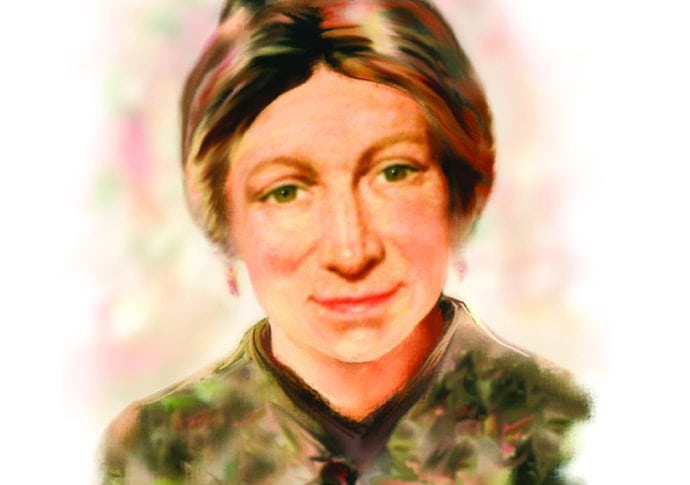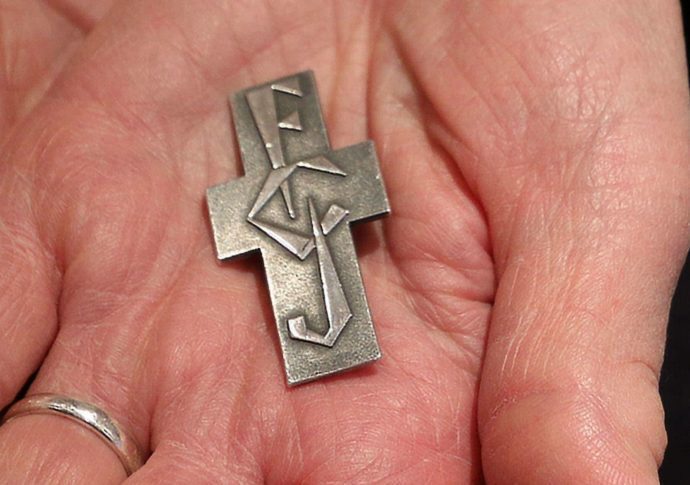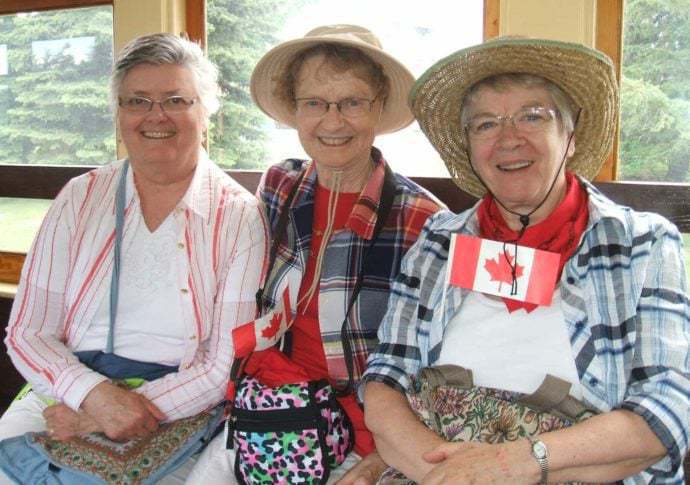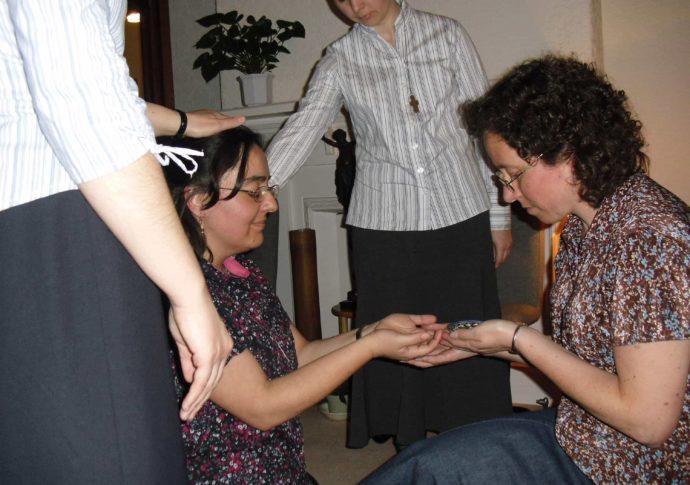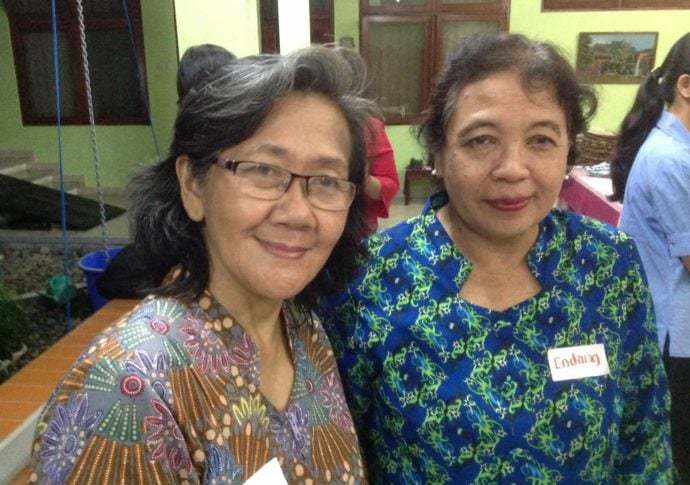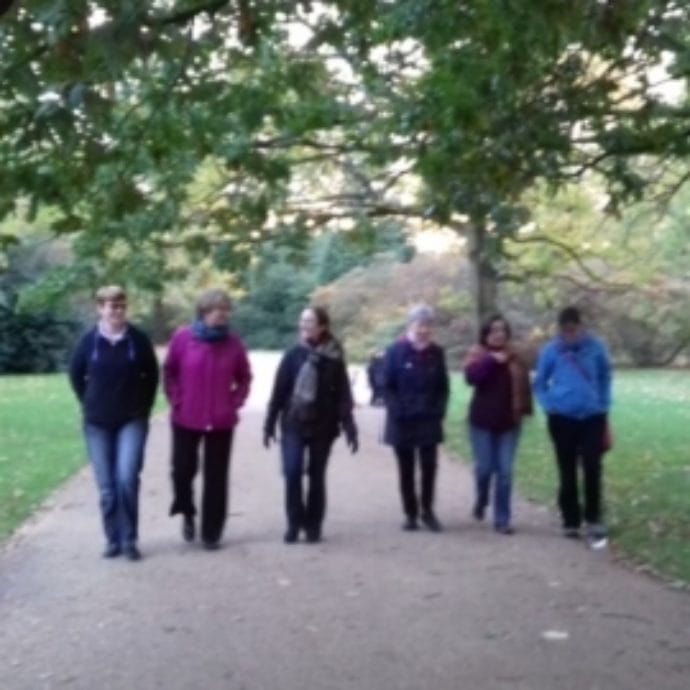A reflection by Ann Rennie, Companion in Mission from Melbourne, Australia. Ann teaches English and Religious Education at Genazzano FCJ College
In the Church’s calendar it is now what is officially known as Ordinary Time. There are thirty-four of these weeks throughout the year, a sort of sacred breathing space between the liturgical seasons. And it is in ordinary time, in the rhythm of the unremarkable, that we build the days of our lives. Over the holidays in the routine contentment of time slowed down, perhaps we have early enjoyed a collective national exhale of existential exhaustion and an inhale of cautious optimism for what 2022 will hold.
However, as I write this on the second Sunday of Ordinary Time in January, sitting in the cool gloom of the Balwyn library, I am aware of the anxiety around us and the worry about school returning and the different pressures on hospitals and supply chains and small businesses. I have noticed shelves empty in the supermarket and wonder when I’ll be able to get my booster shot. Today at Mass, we were reminded of the gifts of the Holy Spirit, and I am trusting that this year we will bring those gifts to bear and lend each other strength and support as we navigate what lies ahead.
My working year begins after Australia Day and this signals the end of a languidly loose timetable of reading, writing, coffee out, later nights, dressing with a fine disregard for fashion and the knowledge that a couple of my new year’s resolutions have already fallen by the wayside. I am rested and renewed for the year ahead, ready to do my bit. Australia Day reminds us of our collective togetherness and the need to shelter each other from the storms of life, in whatever practical and kind way we can.
Attached to my kitchen door on a yellowing A4 sheet are the following words:
Did I win the day or lose it?
Was it well or poorly spent?
Did I leave a trail of kindness?
Or a scar of discontent?
The poet, Philip Larkin, reminds us that we live in all our days. It is the shape of those days, the shape we make of them, that contours everything else around us. If I take out my grumpiness or late night or disappointment or momentary misanthropy on someone else, I am shaping what happens not only to myself, but to all those around me. I am creating a climate.
Teachers often talk about the classroom climate. This climate – and its change – can be engineered by the personal atmosphere the teacher carries into it. This, combined with the unique micro-climate of each student in the class can create fair and fine or choppy and capricious outlooks. Collectively, the classroom can become a peaceful and productive learning space or a place in a state of tension and unease. The same applies to any workplace, office, factory floor, retail sector, large institution or small business. It most especially applies at home where love can be buffeted by the close proximity of different personalities, ages, needs and attitudes. Each of us can change the climate with the mood or temper or attitude we bring to it. We might be concerned about the climate of our beautiful planet, but we also need to remember the climate we create each day between its people.
Abraham Lincoln wrote that each morning as he prayed, he wondered what good he could accomplish that day. What a wonderful way to shape the day to come! We may not shape things at an international, national or local level, but we shape things in our own small arenas of action. We shape them when we make choices to be peaceful, collaborative and just. We shape them when we consider how others might be feeling at this uncertain time and that anxiety and overwhelm can be just below the surface for many. We shape it when we decide that we will try to maintain a climate of hope for others because they need to see this and link arms with it. We shape it when the “Go in peace to love and serve the Lord” at the end of Mass each week becomes the talisman for our efforts, no matter where we are and who we come across.
Corinthians 2 reminds us: Therefore, if anyone is in Christ, he is a new creation. The old has passed away; behold, the new has come.
As a people of faith, we are reclothed in the hope of the new, recreating our relationship with God. We put last year behind us with its lessons learned, its hurts and fears and also the great good we saw from many people, especially those whose gift was to remain cheerful and encouraging when community resilience seemed to slip.
As we start 2022, we can shape this ordinary time of our lives with our attitude. We can enjoy the small ecstasies in the everyday, the little things that build a life. We can be grateful and cheerful knowing that sometimes our personal buoyancy is a life raft for others. We can ask God to breathe new hope into our community as we leave those little trails of kindness behind us as the glue that builds us into better and stronger for the coming year.
Read other contributions by Ann Rennie on our website. Learn about the FCJ Companions in Mission.
Photo by Jacek Dylag on Unsplash





